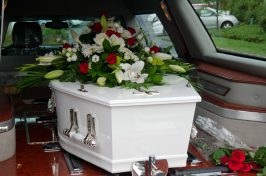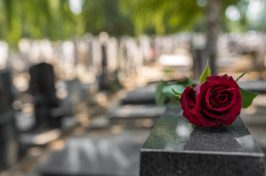What To Do When Someones Dies
Even when a death is expected, it can be a very emotional and overwhelming time, making it difficult for you to focus on the various administrative tasks that need to be completed. That’s why we’ve created this guide to tell you what to do when someone dies.
Documentation
There is an array of official documents that you need to procure, where possible, in order to register a death. The required documents you need are:
- Medical certificate of death
- Birth and marriage certificates of the deceased
- The NHS medical card of the deceased
You will also need to collect the following information:
- The date and location of death
- Date and location of birth
- Their full name and maiden name – if the deceased is a widowed or married woman, you will also need her husband’s full name and occupation
- Date of birth of their spouse
- Their last address
- Their occupation
- Details regarding any benefits or pensions they were receiving when they died
You must register the death within five days of it occurring. This doesn’t mean five working days; it includes weekends and bank holidays.
If the death occurred in a hospital or a nursing home
When someone dies in a nursing home or a hospital, a ‘Removal Order’ is needed so that they can be taken to a mortuary. The family must request and supply said order. Someone will need to pick up their possessions from the home or hospital.
You will be supplied with a medical certificate of death, which will be addressed to the Registrar of Births, Deaths and Marriages.
If the deceased is being cremated, then you must arrange for a second doctor to examine the body before proceeding.
If the death occurred at home
If a death was expected, and a person dies at home, their GP must be informed. The GP will examine the deceased at home and issue a cause of death certificate. For unexpected deaths, the coroner must be informed – they will move the deceased to a mortuary where a post-mortem can take place to determine the cause of death.
In the event you cannot find the GP’s contact details, you should call an ambulance.
If the death occurred abroad
A death must be registered according to the laws of the country the person died in. The British Consulate must also be informed of the death for UK registration purposes.
The deceased will be brought back to the UK, where the Registrar for Births, Deaths and Marriages of the funeral district will be notified. The Registrar can then issue a death certificate before the funeral occurs. If you or the deceased desire a cremation, then you will need to obtain permission from the Home Office.
If the cause of death cannot be determined, the funeral district’s coroner must be informed so a post-mortem can take place.
There’s a lot to know and a lot to remember when somebody dies, and taking care of these things whilst grieving can be overwhelming. Let Bowley Funeral Service take some of the burden by organising all aspects of a funeral according to your requirements and the wishes of the person who has passed. Contact us today and we’ll be here to assist you.




